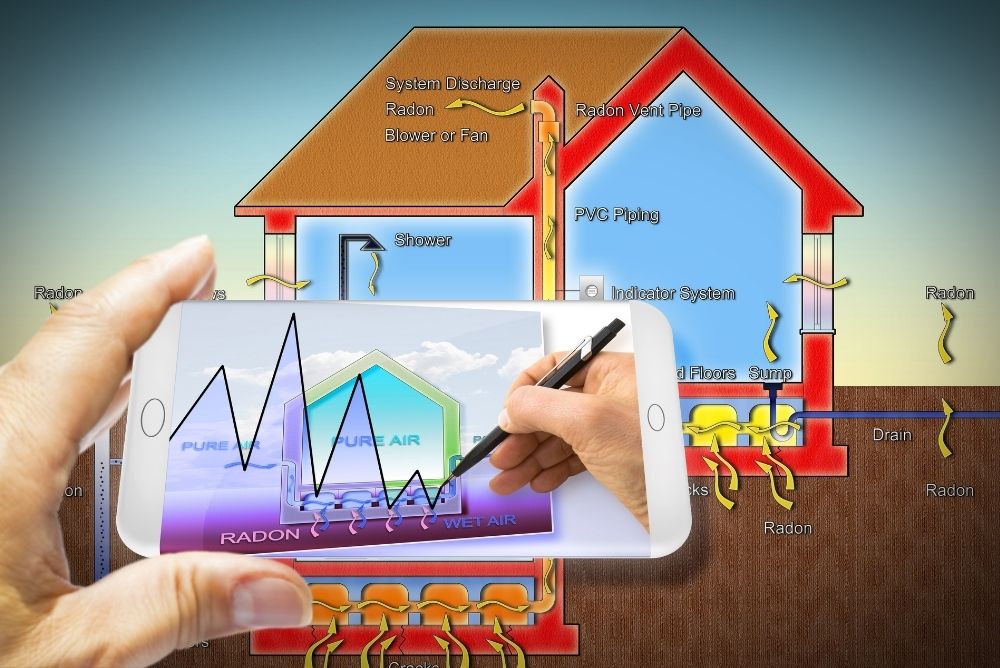Since you can’t smell, feel, taste, or see radon gas, it’s challenging to identify when high levels are present within your home. With that in mind, regular testing is essential to avoid exposure. Understanding the health risks of having radon in your home is the first step to keeping your household healthy and safe.
What Is Radon?
Radon is a radioactive gas that naturally forms on earth, which means some level of exposure is unavoidable. Rocks contain uranium, and radon forms when uranium breaks down. As a result, soil, water, and air can harbor radon gas, which may find its way into your home through cracks and gaps in your foundation.
Associated Health Risks
The most alarming part about radon is that you are completely unaware of your exposure because there are no overt symptoms to alert you. When you breathe it in, radioactive particles stay in your lungs and damage them over time. The damage from the particles can increase your risk of developing lung cancer, and it may take several years for the health problems to surface.
Testing for Radon
The only way to ensure your home stays within safe radon measures is to test every two years, and you can do this on your own or hire a professional to do it. There are several tests and devices to measure radon, including short and long-term.
Short-Term
These tests measure radon levels for two or three days and are a good option if you need to see results fast. You’ll need to keep your windows and doors closed as much as possible for this test to be effective.
Long-Term
Since radon levels can fluctuate daily, a long-term test is the most accurate measure. These tests measure radon levels for more than 90 days, and you can purchase them at most hardware stores for relatively low prices.
Radon Mitigation
Once you get your results back, you should take action accordingly. Although many homes have a built-in passive system, active radon mitigation systems are the best way to combat high radon levels within your home.
The health risks of having radon in your home are serious, but you shouldn’t panic. Instead, keep up with testing regularly and watch your mitigation system to ensure it’s working correctly. Your home should be your family’s safe space, don’t let radon change that.


Recent Comments